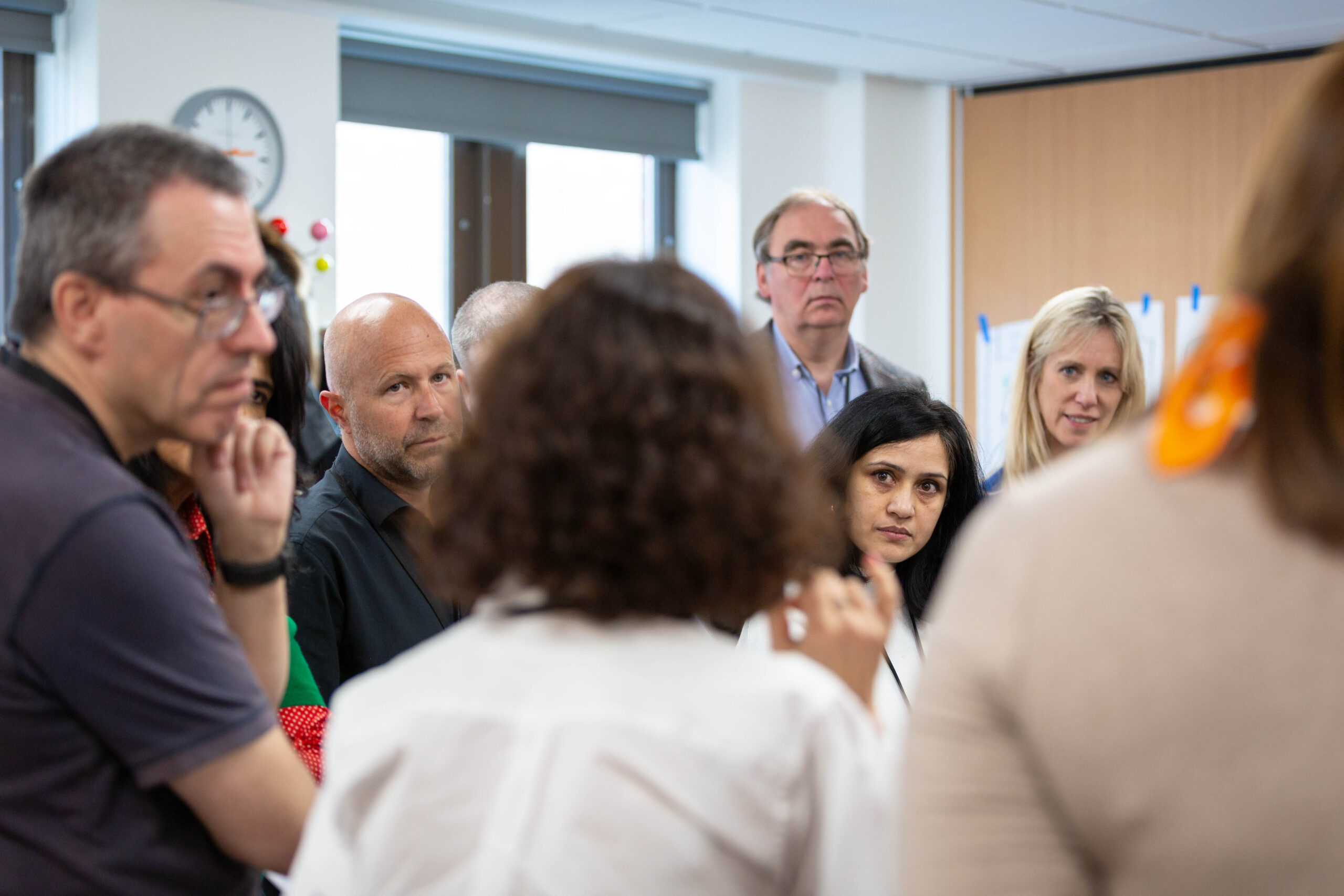Case Study
Building a Global Sales Team That Thrives: How One Company Promoted Psychological Safety
The Challenge: Integrating a Rapidly Growing, Multicultural Sales Team
Imagine a sales team of 20,000 individuals spread across the globe. New hires from diverse backgrounds join every month, and cultural differences can sometimes lead to miscommunication and hinder collaboration. This was the reality for Organisation 1, a company experiencing explosive 40% growth.
The Goal: Fostering Inclusion and Collaboration
The key to success for Organisation 1 wasn’t just about hitting sales targets. It was about creating a cohesive and productive work environment where everyone felt valued, respected, and empowered to contribute their best. This meant fostering a sense of belonging, promoting inclusivity, and building trust among team members from all backgrounds.
The Solution: ORSC Coaching and Targeted Training
Organisation 1 implemented a two-pronged approach to address this challenge:
- ORSC Coaching: Teams within the sales department participated in ORSC (Organisation and Relationship Systems Coaching) coaching sessions. This coaching empowers individuals to develop leadership skills, improve communication, and create a more collaborative environment.
- Targeted Training: Team leaders received a six-part one-hour coach training programme specifically designed to equip them with the skills and knowledge to create a psychologically safe environment. This training focused on practical techniques for building trust, fostering open communication, and resolving conflict effectively.
The Key Elements of ORSC Coaching
ORSC coaching goes beyond simply solving problems. It focuses on:
- Holding the People, Not the Problem: Understanding the needs and perspectives of everyone involved in a situation is crucial.
- Shared Leadership: This approach encourages a collaborative environment where everyone has a voice in decision-making.
- Building Relationships: Strong relationships are essential for fostering trust and open communication.
The Impact: A Positive Shift in Culture
The initiative yielded significant results:
- Increased Awareness: Team leaders became better coaches and mentors, creating a more supportive environment.
- Enhanced Communication Skills: Team members learned to communicate more effectively, leading to improved understanding and respect.
- Improved Cohesion: A stronger sense of belonging and support fostered increased collaboration and teamwork.
- Stronger Relationships: Trust and camaraderie improved, enabling teams to overcome challenges more effectively.
Lessons Learned: Key Takeaways
This case study offers valuable insights for any organisation aiming to build a thriving team:
- Invest in Leadership Development: Equip team leaders with the skills to coach and build a psychologically safe environment.
- Embrace Cultural Diversity: Recognise the value of diverse perspectives and create a welcoming and inclusive workplace.
- Promote Open Communication: Encourage honest dialogue and feedback to build trust and respect.
- Build a Supportive Network: Offer programs and resources that support employee well-being and create a sense of belonging.
Sustaining Psychological Safety: A Continuous Journey
Maintaining a psychologically safe environment requires ongoing effort:
- Regular Coaching and Training: Upskilling team leaders ensures they continue to develop their coaching skills.
- Open Communication Channels: Maintain clear communication channels for feedback and concerns.
- Diversity and Inclusion Initiatives: Promote awareness, empathy, and celebration of diversity within the team.
- Employee Well-being Programs: Prioritise employee well-being to create a healthier and more positive work environment.
The Power of Psychological Safety: A Winning Formula
By promoting psychological safety, Organisation 1 reaped multiple benefits:
- Enhanced Performance: Employees felt comfortable sharing ideas and taking risks, leading to increased productivity and innovation.
- Stronger Relationships: A more collaborative and supportive culture fostered stronger bonds within the team.
- Increased Innovation: A safe environment encouraged creative thinking and generated new solutions.
- Employee Well-being: Employees felt valued and supported, leading to a happier and healthier workforce.
In conclusion, fostering psychological safety is not just a feel-good initiative, it’s a strategic investment in building a high-performing and resilient sales team. If you’re interested in the ORSC training programme, we’d love to chat. You can schedule in an information call with Keith for a deep dive on the course content and to discuss your specific struggles and how ORSC can help.






